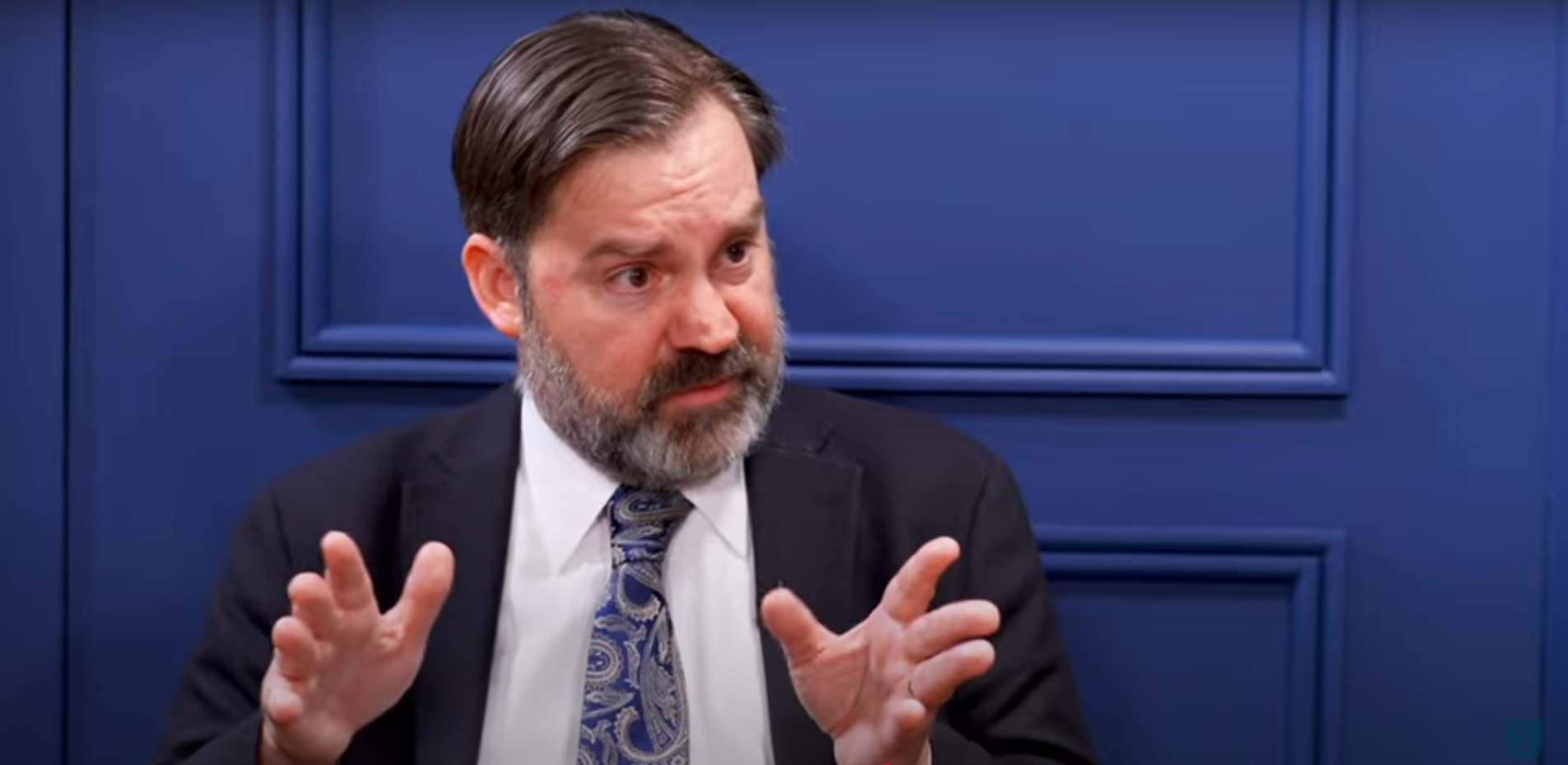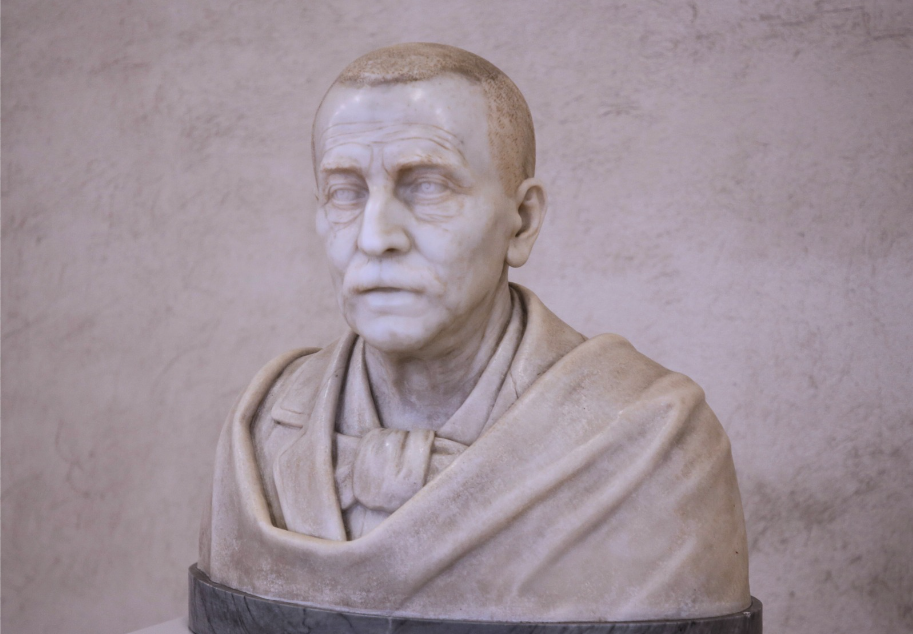Thomas Paine: Britain, America, and France in
the Age of Enlightenment and Revolution
By J. C. D. Clark
(Oxford University Press, 2018)
J. C. D. Clark’s pathbreaking book Thomas Paine: Britain, America, and France in the Age of Enlightenment and Revolution aims at a reinterpretation or, better, a new interpretation focusing on “Paine’s political and social thought and of the intellectual history of the ‘age of revolution,’ an age in which religion is here reinstated as a leading political preoccupation.”
Clark is a well-known and, for some, controversial historian of the late seventeenth century to the early nineteenth century. He was Cambridge educated, holding positions at Cambridge, Oxford, and the University of Kansas, from which he recently retired. In addition to work on Paine and Burke, Clark is the author of significant books on Samuel Johnson and other topics.
The controversial nature of Clark’s works stems in part from the emphasis he places on religion and culture rather than economics and social processes. This is part of Paine’s significance for what Clark describes as “the present age of religious wars.” As Clark makes clear, Paine was not a professed atheist like the journalist Christopher Hitchens (who also wrote a political biography of Paine). Indeed, Paine speaks of religion in Rights of Man as characterized by its “original benignity.” The problem for Paine emerges when religion is a primary factor in the “law-establishment.” When a state religion is instituted, then intolerance and persecution are certain to follow. In Clark’s account, this problem was Paine’s main preoccupation.
Part of placing Paine in historical context rests on what Clark terms “negations.” One such central negation is the concept of “enlightenment,” which is often linked to Paine. The meaning of the term evolved over time, Clark shows. Only in the mid-eighteenth century was the term reified as “the Enlightenment,” meant to signify the “fiction of a unified project.” In a recent lecture, Clark claimed that rather than “the Enlightenment,” it is more correct to speak of “the endarkenment.” Doubtless this is due to the emphasis the Enlightenment places on reason while at the same time succumbing to dogmatism, especially regarding religion.
The use of language and discourse by Paine is a focal point for Clark. Rather than employing language that foretold a “modern, Utopian or cosmopolitan future,” Paine spoke in the language of politics familiar to his contemporaries. While new ideas and causes such as “anti-slavery, universal manhood suffrage, the redistribution of land, and equality” were forthcoming in the late eighteenth century, “Paine was not a leading advocate of any of them.”
When later writers celebrated Paine and employed him for their own purposes, they reconstructed him. Neither Paine nor his contemporaries devised, much less used, such positions as “radicalism, liberalism, and conservatism.” Neither did he employ such terms as the “Industrial Revolution, modernization, secularization, nor symbols of identity like social class and nationalism, nor psychological states, like emotion or nostalgia.” For Clark, Paine could not say much about the issues because they were not conceptualized during his lifetime.
What were Paine’s goals, then? Clark argues that he focused on ending monarchy and hereditary privilege. Paine was not an active advocate of universal manhood suffrage or of women’s rights, even though he had been in the company of Mary Wollstonecraft. Furthermore, Clark disputes the claim by Hitchens and others that Paine was one of the earliest champions of democracy. Clark points out that the word democracy occurs on only three pages in part 1 of Rights of Man and likewise three times in part 2. In part 1, Clark insists that Paine treats democracy as an abstract category, as in the threefold distinction of “monarchy, aristocracy, and democracy.” In part 2, Paine considers it only in relation to direct democracy, which he disavows in favor of the representative mode of government.
Also among Paine’s negations was failure to be an outspoken critique of slavery. Although against the institution of slavery, he was not actively involved in opposition. While familiar with abolitionists, he did not join in their initiatives. Indeed, slavery was not prominent in his thinking. As Clark notes, Paine did “not write even a single paragraph against slavery in Rights of Man.”
Perhaps most surprising, Paine did not even speak much about equality. In Rights of Man, equality is only mentioned twice, both times in part 1. When Paine did write on equality, it was on deist grounds. Famously or infamously, he wrote that “My own mind is my own church.” Equality is expressed as an individual’s unmediated access to the deity. This access did not imply an “equal share of ‘reason’ given to all,” but it did imply the “equality of individuals.”
It would seem to follow that individuals are entitled equally to form their own religious opinions, yet this implication collapses in The Age of Reason, where Paine argues that this tolerance should not extend to atheism and Catholicism. Paine’s deism entailed the possibility of a “direct communication from God to all individuals.” For Paine this disqualified “revelation as a restricted communication to just some,” a position that undercut “authoritative institutions.”
In effect, Paine’s deism implies an absconded God whose existence accounts for creation. This is evidenced by the order within the world following natural laws. Paine’s is a unitary God, excluding trinitarianism. This God does not providentially intervene to prevent such events as the Terror unleashed in the French Revolution. Even Hitchens, however, acknowledged that Paine “wanted to prevent the French Revolution from becoming a full-blown instatement of atheism.” Hitchens continues: “much as he may have welcomed the end of the rotten alliance between pulpit and throne, he was dismayed by the violent rush towards godlessness.”
Clark holds that Paine depicts revolutions according to “particularist older discourses” whose theoretical expression is drawn from the internal conflicts of the host societies rather than “universalist ideological novelties” applied to humanity in general. For Clark, both the American and the French Revolutions were ideological and religious civil wars from the outset. It is against this background of revolutionary violence that Paine’s texts need to be read.
Neither Celebration nor Demonization
Clark has more than exceeded his goal in this most important and needed reconsideration of Paine. The depth of his research is unsurpassed in the literature and will remain at the forefront for some time to come. Yet it should not be surprising that this is not an opinion finding universal agreement among historians. One dissenting historian is Darrin McMahon, author of Enemies of the Enlightenment, who claims that Clark’s approach to history is one in which “inertia is the rule.” It is a “conservative approach” seeking to “demonstrate what is preserved over time.” As such, Clark “has sought to deflate radical pieties, both past and present.” It is with this “deflationary intent” that he presents the political life of Thomas Paine.
Yet Clark regards his study of Paine as neither a “celebration nor demonization.” Rather he seeks to “explain” Paine “historically,” in a “non-partisan spirit.” As opposed to the charge of “inertia” in his own “approach to history,” Clark denies arguing “for the residual survival of an ‘old’ world into a ‘new.’ ” Instead, Clark claims to be arguing “for a reinterpretation of that ‘new’ world itself.” The age of revolution in which Paine lived requires, Clark contends, to be reinterpreted in “radical and even revolutionary ways,” especially in “the present age of religious wars.”
Woe to the author who ventures far from the lair of favored historians who safely acclaim each other, hence preserving their “herd immunity” against historians who think against the grain of what SØren Kierkegaard refers to as “the present age.” For the nineteenth-century forerunner of existentialism, the present age has fallen to the “levelling” tendency, in which “more than death the individual fears the judgment and protest of reflection upon his wishing to risk something on his own.” Clark has not succumbed to the “levelling” tendency that prevails among many of today’s historians who fear “risking something on [their] own.” Clark has spent a career willingly risking “something on his own,” venturing from the currently safe and trodden path of “Whig-Liberal and Marxist versions of the English past.”
In Clark’s willingness to risk thinking on his own, still within the historical context in which Paine lived, he has restored religion to its prominent place in “the age of revolution.” Theism was the way by which Paine sought to remove the scaffolding of monarchy and hereditary privilege. Paine’s understanding of theism, rightly or wrongly, places the single individual above institutions, yet annuls militant atheism.
While not sharing in Paine’s brand of deism, it is noteworthy that Étienne Gilson, the famed French historian of medieval philosophy, concurs with Paine on the causal argument for God’s existence. As Paine expressed in The Age of Reason, “It is only by the exercise of reason that man can discover God.” Starting from the contingency of creation, reason discloses the necessary existence of the Creator. At this one significant, albeit limited, point, the Thomistic theism of Gilson and the deism of Paine appear in agreement, and so perhaps is Jonathan Clark.
Joseph Pappin III is professor emeritus of philosophy at the University of South Carolina and the author of The Metaphysics of Edmund Burke.















